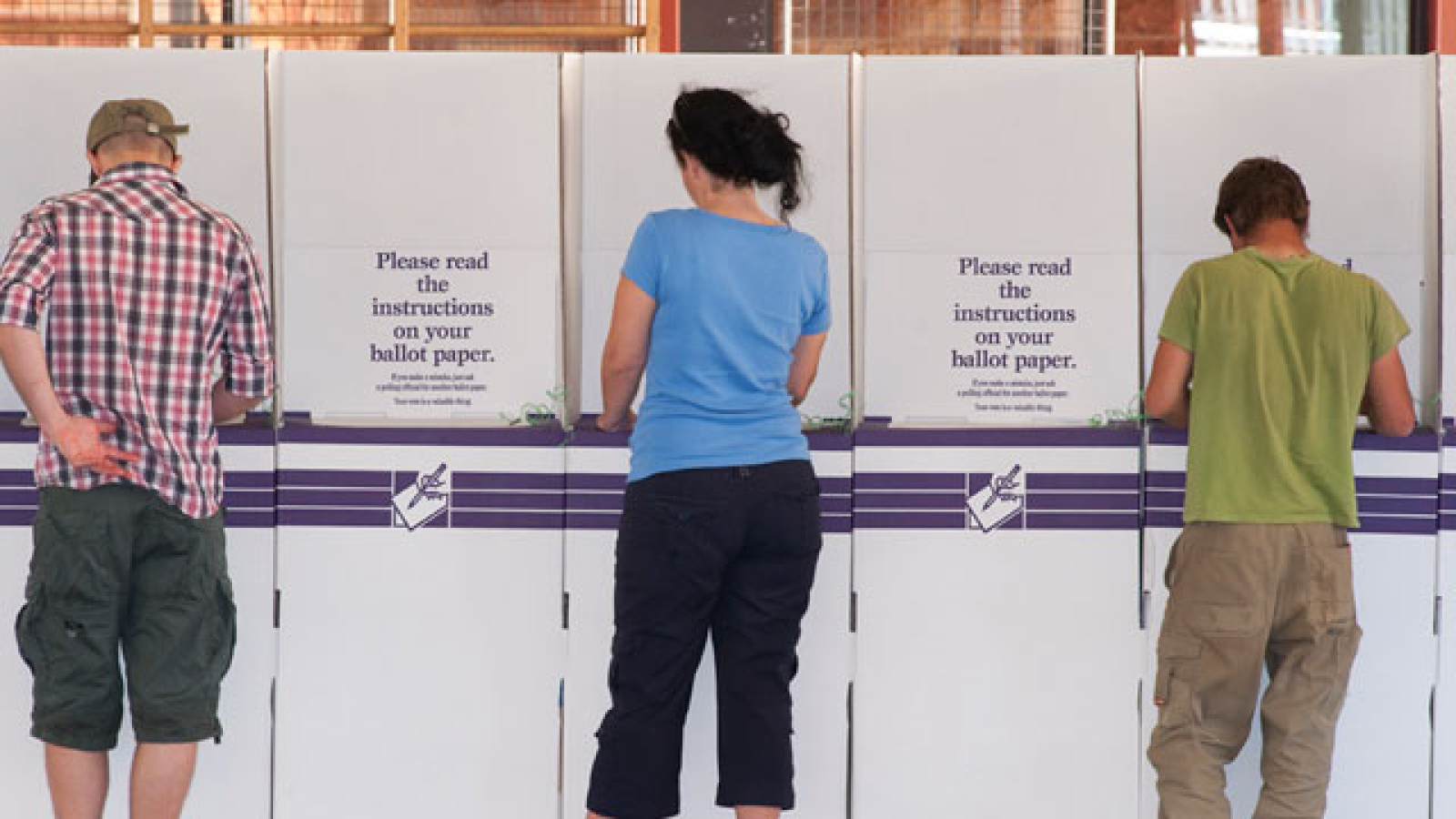ANU expert to deepen research into Australian voting age limits

Professor McAllister says the university's Australian Electoral Study will now cover federal elections in 2016 and 2019. Image: Australian Electoral Commission
An ANU expert on political engagement has received funding that for the first time will cover two Australian federal elections, instead of the usual one.
Professor Ian McAllister from the School of Politics and International Relations also says there is no evidence to support a recent proposal by the Australian Labor Party to lower the voting age to try engaging more young people in politics.
The new Australian Research Council grant will cover 2016-2019 and is part of the Australian Electoral Study which has assessed every federal election since 1987.
“We will run a panel survey of 2,000 people and look at young people and their engagement in the political process,” Professor McAllister, the study’s team leader, says.
“It is also different because the grant covers two federal elections whereas in the past we’ve only ever been able to cover one because there was a three-year horizon on ARC funding.
“We have a degree of certainty we didn’t have before.
“The survey is a research multiplier, domestically because lots of people at other universities in Australia use it, but also lots and lots of other people overseas use it, too.”
The study is also a magnet for potential students from other Australian universities and overseas who want to learn quantitative methods and survey data at one of the few Australian institutions to offer such instruction.
The Australian Electoral Study, which includes publicly-available information from the Australian Data Archive, is part of the international Comparative Study of Electoral Systems involving more than 40 countries.
Chair of the Australian Electoral Commission’s advisory board for electoral research, Professor McAllister recently featured in a national debate prompted by the ALP’s proposal to lower the voting age from the present 18 years to 16.
“Our survey shows that one in 10 people support it,” Professor McAllister says.
“The more I’ve looked at all this, the more I’ve concluded that simply changing the rules and procedures is not going to fix it. The major problem is the sort of politics that’s being offered is not particularly attractive to young people.
“Our surveys show that younger people are as interested in politics as they ever have been – that’s not the problem. They’re not interested in the sort of retail politics that they find at the moment.”
That represents a “fundamental shift” in how younger people view politics as they don’t see elections as a civic duty unlike their grandparents, Professor McAllister adds.
Scotland lowered its voting age to 16 for the recent referendum, while British Prime Minister David Cameron has said he will consider the idea for Westminster elections. Austria is studying a similar proposal and Professor McAllister will be involved in those assessments.
Interested in studying politics? ANU offers the only Bachelor of Political Science degree of its type in Australia.